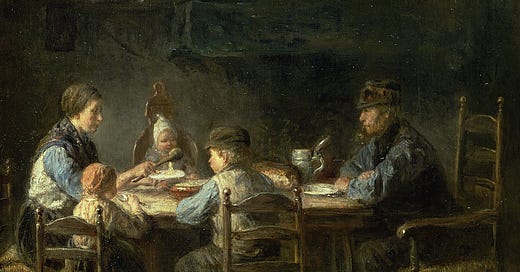The Lancet recently released a large report on medicine, Nazism, and the Holocaust. The authors make a strong case that we should no longer neglect this history in medical education.

This shouldn’t be a token lecture but part of a deep curriculum on the history of medicine. We need to learn about the history of our field - the good and the bad. Without it, the optimism of our biomedical techniques make us forget the lessons and stories of the past.
I’ve previously considered how these lessons apply to palliative care and assisted suicide/euthanasia. Remembering the atrocities committed by the Germans in their experiments and euthanasia programs, Leopold Alexander wrote in 1949:
“Whatever proportions these crimes finally assumed, it became evident to all who investigated them that they had started from small beginnings. The beginnings at first were merely a subtle shift in emphasis in the basic attitude of the physicians. It started with the acceptance of the attitude, basic in the euthanasia movement, that there is such a thing as life not worthy to be lived. This attitude in its early stages concerned itself merely with the severely and chronically sick. Gradually the sphere of those to be included in this category was enlarged to encompass the social unproductive, the ideologically unwanted, the racially unwanted and finally all non-Germans. But it is important to realize that the infinitely wedged-in level from which this entire trend of mind received its impetus was the attitude toward the nonrehabilitatable sick.”
It’s always easier to tear down than to build up. That’s true in the tearing down itself. It’s also true in how destruction spreads. We can appreciate how that happens by studying history, as Alexander’s reflections show us:
“The ease with which destruction of life is advocated for those considered either socially useless or socially disturbing instead of educational or ameliorative measures may be the first danger sign of loss of creative liberty in thinking, which is the hallmark of democratic society. … The destructive principle, once unleashed, is bound to engulf the whole personality and to occupy all its relationships. Destructive urges and destructive concepts arising therefrom cannot remain limited or focused upon one subject or several subjects alone, but must inevitably spread and be directed against one’s entire surrounding world, including one’s own group and ultimately the self. The ameliorative point of view maintained in relation to all others is the only real means of self-preservation.”
Given the depth and breadth of information medical trainees are expected to learn, it can be challenging to figure out where you fit in a whole course on the history of medicine. But such a sentiment betrays a presupposition that the history of medicine isn’t really necessary to learn at all. We don’t ask that about learning hypernatremia or pulmonary function. Where are we going to fit those in? It’s a given that medical trainees must learn the minutiae of anatomy, physiology, and the diagnosis and treatment of disease. Why is it not also a given that medical trainees learn about the history of medicine? Why not also learn about the human condition from literature and poetry? Reflecting on Frankenstein has had a far greater impact on my day-to-day practice of medicine than ever learning the Krebs cycle. The technical bias in medical education would have us believe that these humanistic courses are at best interesting additions to medical education and at worst distractions. They’re nice to think about if you have time, but not critical.
I’m not so naive as to believe that even totally overhauling medical education would fix our broken healthcare system (either philosophically or structurally). I do think it would be a step in the right direction though. Until we can reappraise our values at the level of medical education, though, we’ll continue to inculcate the technical mindset in trainees and suffer the consequences in clinical practice. Clinicians will struggle to see the humans they’re treating and use their interventions wisely and well.



Krebs cycle brings up memories. Good little article. Thanks for writing!